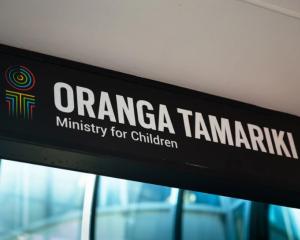
The findings of the Transport Accident Investigation Commission's (TAIC) investigation into the catastrophic grounding of the MV Rena, released today, details a list of concerns, including those around crew training and international conventions.
The TAIC launched its inquiry shortly after the Liberian-flagged container ship struck the Astrolabe Reef off the coast of Tauranga at 2.14am on October 5, 2011.
The grounding resulted in the spill of 350 tonnes of heavy fuel oil and hundreds of containers into the sea, temporarily polluting Bay of Plenty beaches and killing wildlife.
The Liberian-flagged ship's master, Captain Mauro Balomaga, and its second mate, Leonil Relon -- both trained in the Philippines -- were each sentenced to seven months' jail in 2012 but served half the sentence.
Delivering the findings today, TAIC commissioner John Marshall QC said the grounding was not due to any equipment malfunction, but rather poor planning and execution.
The passage plan did not meet standards of best practice, and a shortcut that was taken to reach the Port of Tauranga by 3am -- which instead led straight to the reef, but would have only saved a minute had it not been there -- increased the risk and "contributed directly".
There were also failures in the standard of watch-keeping in almost all aspects, the navigating crew were not strictly following company procedures, and monitoring equipment also wasn't used adequately.
By the time Mr Balomaga took control of the ship, shortly before the impact, he had received virtually no information about the course.
Mr Marshall said fatigue was likely, at least, to have affected performance but there was insufficient evidence to determine if actions attributable to it.
The investigation further found that the navigating crew had not been following the safety management system for at least the six coastal voyages prior to the grounding; that deficiencies had been spotted on the Rena at previous ports overseas; and that international protocols for auditing training standards "lacked transparency".
An independent audit had found Philippines' maritime education, training and certification system did not meet mandatory standards enforced by the International Maritime Organisation (IMO).
The commission recommended that the company which managed the Rena, CIEL Shipmanagement SA, "evaluate the effectiveness" of its safety management system, and that Maritime New Zealand (MNZ) push, through the IMO, for greater transparency of the system for auditing countries' seafarer training systems.
The commission further recommended that MNZ collect sufficient data on shipping movements around the New Zealand coast, and "monitor and control" the use of virtual aids to navigation around the coast.
A lack of data meant it wasn't possible to make any meaningful analysis to see whether there was any need for ship routing in some form around the coast.
However, MNZ director Keith Manch told the Herald ship routing normally occurred in areas where there was a huge amount of traffic, "and there isn't a huge amount of traffic in New Zealand".
"It's not that there isn't enough traffic for ship routing, it's just that the conditions haven't been seen to exist previously for it."
MNZ would consider the option in a new review which would give a comprehensive analysis of factors contributing to risks around shipping.
It would also consider the virtual aids suggested by TAIC.
Mr Marshall said if a light on the reef "probably would have helped" avoid the grounding, but there were a number of such hazards around the country and the costs and advances in technology had to be considered.
A simple chart plotter or plotter integrated with radar came with low cost, and would have visually alerted the bridge to the reef.
Visual aids were an alternative, Mr Marshall said, but should not be introduced before proper research and a development of standards.
- Jamie Morton of the New Zealand Herald











